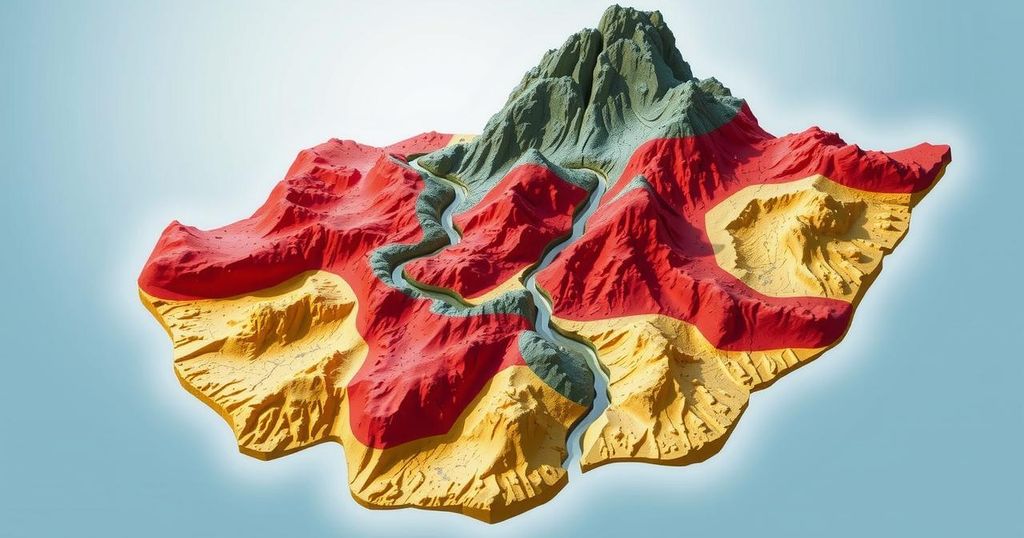Ethiopia Earthquakes: Experts Assure GERD Safety Amid Regional Concerns

Ethiopia’s Afar region has experienced a series of earthquakes, prompting evacuations and concerns regarding the Grand Ethiopian Renaissance Dam (GERD). Experts, however, indicate that the seismic activities are distant enough not to jeopardize the dam. There remain concerns about environmental implications and the need for further scientific assessment.
Recent seismic activities in Ethiopia’s Afar region have triggered significant evacuations, with over 80,000 individuals displaced due to a series of earthquakes, including an 8.1 magnitude quake reported earlier today. While these tremors have raised alarms in Sudan regarding the Grand Ethiopian Renaissance Dam (GERD), Sudanese geoscientists assert that there is minimal risk to the dam, which is adequately designed to withstand seismic events. Engineer Abdelkarim El Amin emphasized that the current earthquakes are occurring more than 100 kilometers away from the GERD, and its construction took potential seismic risks into account.
Concerns about a possible leak affecting the reservoir lake have emerged; however, these worries appear unfounded. El Amin reassured that the dam site was deliberately selected based on geological studies conducted prior to its construction. He stated, “What is important is that the area where the GERD is built is far from the earthquake zone in eastern Ethiopia,” underscoring that the infrastructure is engineered for stability.
El Amin acknowledged the environmental implications of the GERD, describing it more as a security concern than a technical one. He presented a hypothetical worst-case scenario, where a partial failure could lead to catastrophic flooding in Sudan and Egypt, devastating infrastructure along the Nile River. In light of the geological and environmental considerations, there is a call for a comprehensive scientific assessment regarding the GERD’s impact on the Nile Basin.
Ethiopia’s Grand Ethiopian Renaissance Dam has been a focal point of regional tension due to its potential impact on downstream countries, particularly Sudan and Egypt, which rely heavily on the Nile for water resources. The dam’s construction occurred amid concerns about its ecological and political repercussions, especially considering the seismically active regions neighboring it. Recent earthquakes in the Afar region have reignited fears regarding dam safety and regional stability, prompting experts to evaluate the situation and communicate necessary safety assurances.
The ongoing earthquakes in Ethiopia have led to considerable evacuations, yet Sudanese geoscientists assert that the GERD remains unaffected, despite concerns. Current seismic activity is distant from the dam, and structural integrity is guaranteed by its design. Nonetheless, potential fears remain about environmental consequences and a broader impact on regional water resources. It is essential to approach these concerns with scientific thoroughness, advocating for expert collaboration on water management and environmental impacts.
Original Source: www.dabangasudan.org








